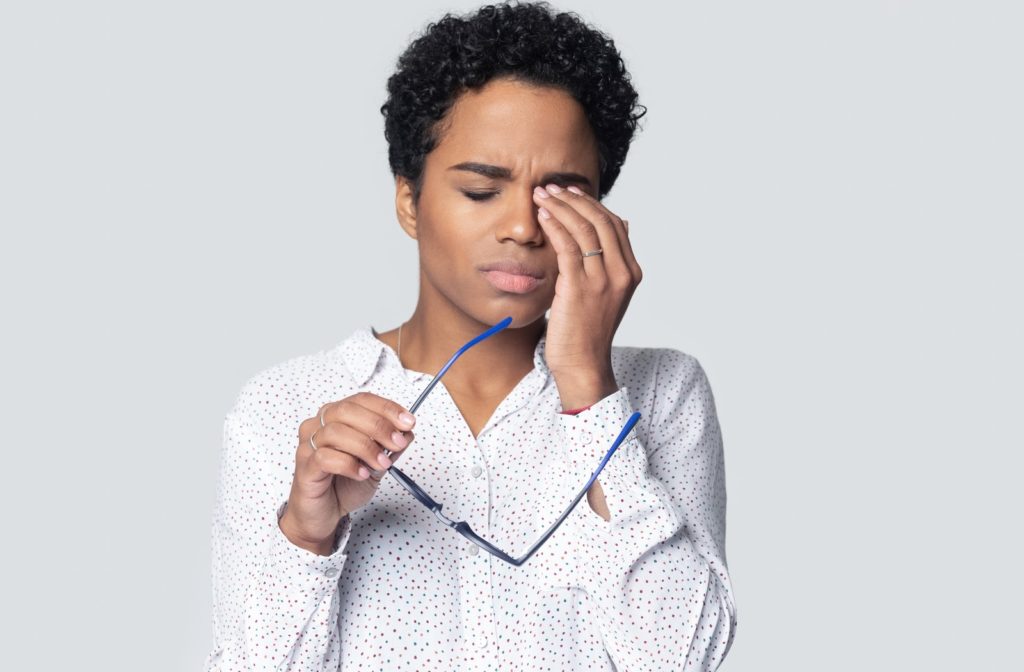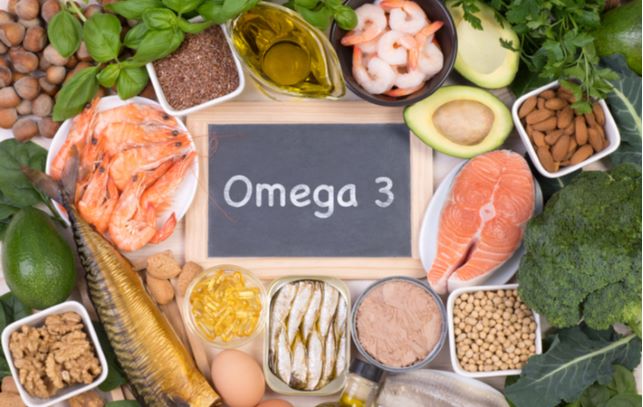Dry eye is one of the most common ocular conditions today. The scratchy, gritty, or stinging feeling can make your day-to-day quite uncomfortable.
According to a survey from the Alberta Association of Optometrists, 3 out of 5 Albertans who experience dry eye symptoms do nothing to treat it. Talking with your optometrist to see if adding omega-3s to your diet is right for you can help keep your dry eye symptoms in check.
How Do Your Tears Work & Why Are They Important?
Tears wash away dirt and debris to protect your eyes from germs and infections. When you blink, a tear film covers your eye to keep the surface smooth and clear.
The tear film is made up of 3 layers:
- An oily layer – responsible for making the tear surface smooth and keeps the tears from drying up too quickly.
- A watery layer – makes up most of what you see as tears and washes away the particles that don’t belong in your eyes.
- A mucous layer – helps to spread the watery layer over the surface of the eye to keep it moist. Without this layer, tears would not stick.
If one or more of these layers are affected, you can experience dry eyes.
What is Dry Eye?
There are two main causes of dry eye. Either your eyes aren’t making enough tears or your tears are drying up too quickly.
A gland in the corner of your eye called the lacrimal gland is responsible for making your tears. When your lacrimal gland does not make enough tears you can experience dry eyes.
Causes of this include:
- Aging eyes
- Medical conditions such as diabetes, lupus, Sjogren’s syndrome, and thyroid disorders
- Side effects from medication
- Laser vision correction
- Inflammation
If your tears are drying up too quickly there could be a problem with the makeup of your tears. The meibomian gland creates an oil that prevents the tear film from evaporating. If it gets clogged, you can experience the symptoms of dry eye. This is known as Meibomian Gland Dysfunction (MGD).
Other reasons your tears are drying up could be:
- Environmental factors like smoke, wind, or dry air
- Low blinking activities such as staring at a screen or reading
- Eyelid problems
- Thyroid issues causing the surface of your eye to get bigger

Where Does Omega-3 Come Into Play?
Omega-3 fatty acids are essential fats that the body can’t produce itself. Your body instead must get it from external food sources. Foods high in omega-3s include fish, nuts (especially walnuts), flax seeds, and leafy vegetables. Omega-3s are also available in pill form.
Studies show when your body breaks down omega-3 fatty acids, it can lead to the suppression of inflammation. Inflammation of the eyelids or the eye’s surface can worsen other dry eye symptoms. By adding omega-3s to your diet, symptoms can improve.
Increasing dietary lipid (fat) intake with omega-3s can also improve the function of the meibomian gland. This influences the oily layer of your tears and is important to ensure your tears don’t dry up too quickly. Your eye doctor may recommend adding omega-3 fatty acids to your diet as a therapeutic option for MGD.
Find the Solution Right for You
Adding more fish, nuts, and leafy vegetables to your diet can increase your overall eye health. If you think Omega-3s could help treat your dry eyes, visit your local trusted eye care professional at River Heights Eye Care to discuss a dry eye solution that is right for you.


